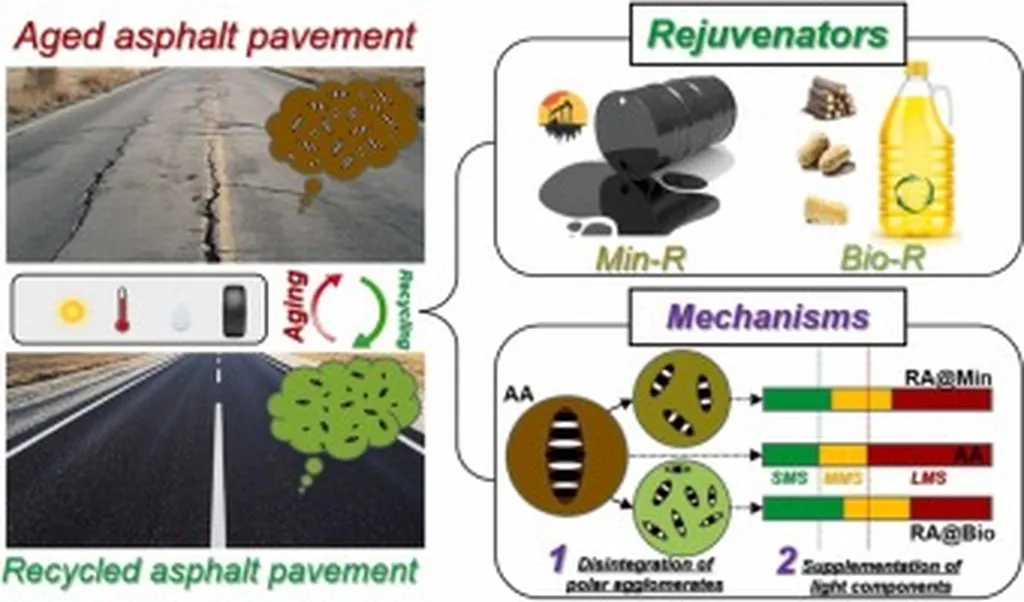In the quest to make asphalt recycling more efficient and effective, a team of researchers led by Qiqi Zhan from the National & Local Joint Engineering Laboratory of Transportation and Civil Engineering Materials at Chongqing Jiaotong University has developed a novel framework for evaluating the performance of asphalt rejuvenators. This breakthrough, published in the journal *Developments in the Built Environment* (which translates to *Advances in Construction and Civil Engineering* in English), could significantly impact the energy sector by optimizing the use of recycled asphalt and reducing waste.
Asphalt rejuvenators are substances added to aged asphalt to restore its original properties, making it suitable for reuse. However, until now, evaluating the performance of these rejuvenators has been a challenge. “Effective methods for evaluating their performance remain insufficient,” Zhan notes, highlighting the gap this research aims to fill.
The team selected three types of rejuvenators and prepared recycled asphalts to systematically evaluate their rheological properties—essentially, how the asphalt flows and deforms under stress. Through laboratory experiments, they found that while the rejuvenators successfully recovered the penetration and softening point of the aged asphalt to levels comparable to virgin binder, significant differences remained in its rheological properties. This underscores the limitation of relying on a single index to evaluate rejuvenator performance.
To address this, the researchers developed a performance assessment framework using the entropy method, a statistical approach that reduces bias by considering multiple factors. “The proposed framework enables a more objective and balanced assessment of rejuvenator performance,” Zhan explains. This method could revolutionize how rejuvenators are selected and applied, ensuring better quality and consistency in recycled asphalt.
The implications for the energy sector are substantial. Asphalt recycling is a growing practice aimed at reducing the environmental impact of road construction and maintenance. By improving the evaluation of rejuvenators, this research could lead to more efficient recycling processes, reducing the need for virgin materials and lowering costs. “This study offers technical guidance for the performance evaluation of rejuvenators and contributes to the efficient recycling of aged asphalt,” Zhan adds.
The framework developed by Zhan and her team could set a new standard for the industry, shaping future developments in asphalt recycling. As the demand for sustainable construction practices grows, this research provides a valuable tool for professionals in the field, ensuring that recycled asphalt meets the highest performance standards. With the insights gained from this study, the energy sector can move towards a more sustainable and cost-effective future.

